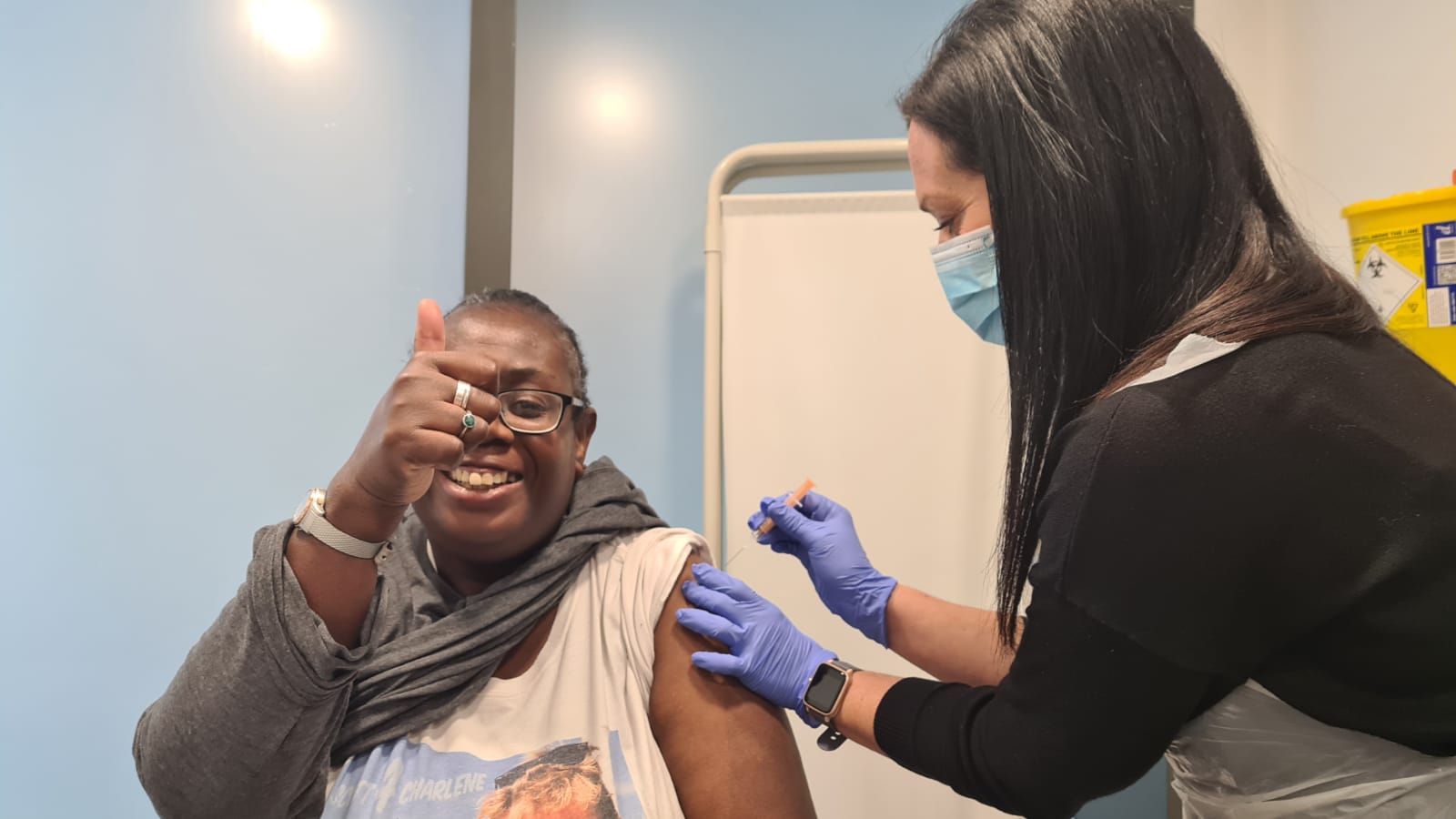Help to get Covid vaccine to people with learning difficulties
Priority scheme sees some injections administered in patients' homes
Monday, 29th March 2021 — By Harry Taylor

Annette Jarram receives her first Covid jab
A SCHEME has begun to make it easier for people with learning disabilities to get a Covid vaccine.
Camden’s Learning Disability Service (CLDS) has been making the vaccinations a priority since February, administering some in patients’ homes.
A study by Bristol University into the mortality during pandemic found people with learning disabilities are six times more likely to die from Covid.
The issue has received national attention. BBC Radio 2 presenter Jo Whiley raised the case of her sister, Frances, who has a learning disability, and had not received priority help for the vaccine.
Annette Jarram is among those to have received her first jab in Camden.
The 49-year-old, who has mild learning disabilities, lost her job as a chef at the City and Guilds centre in Farringdon at the onset of the pandemic.
“It’s been horrible,” she said. “All the things I’ve been hearing on the news about Covid has been ridiculous, I wish it would go away. I feel for all the people, in the care homes, who have been dying. That’s why it’s important for everyone out there to go and get their vaccine.
“Mostly I miss going to a pub, restaurants, going for lunch with my friends. I can’t do that at the moment because of lockdown and these changes.”
Ms Jarram got her vaccine through the CLDS scheme, and was visited at home.
The service has been working with the primary care network team at the Peckwater Vaccination Centre to contact people with learning disabilities and potentially vaccinate them at home, or make adjustments for them if they are having the jab at the unit.
Community nurse Carys Hunt, from the CLDS, said the way the coronavirus rules had changed at different times, often at short notice, had been challenging for people with learning disabilities.
“I work with someone who is autistic, and doing the same routine every day is so important to everything,” she said.
“If their routine gets messed up at all, it affects their sleep, how they’re able to eat and it leaves them feeling really trapped and angry.
“So being told one day that ‘yes you can meet your friends in the park on Saturday’, then the next day ‘it’s changed, you can’t do that any more’ – that person’s whole week has been completely ruined, they are off their food, they can’t take their medicine, we’ve had to potentially go into hospital.
“It has been a real struggle and really stressful, that inconsistency.”
Ms Hunt said the priority scheme had also worked to help people in supported living accommodation.